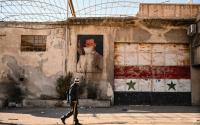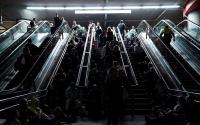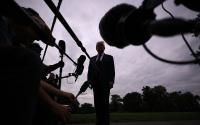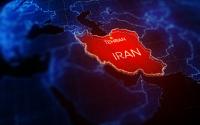26 April 2004The Independent
American troops will enter parts of the holy city of Najaf to crush the radical Shia cleric Muqtada Sadr but will avoid its sacred sites, a US general said yesterday.
Shia leaders have warned there will be an explosion of anger among the 15 to 16 million Iraqi Shia if US soldiers enter Najaf, where Imam Ali, the founder of their faith, is buried in a golden-domed shrine.
"We're going to drive this guy [Sadr] into the dirt," said Brigadier General Mark Hertling, the deputy commander of the 1st Armoured Division. "Either he tells his militia to put down their arms, form a political party and fight with ideas not guns, or he's going to find a lot of them killed."
These are fighting words from General Hertling which imply that Iraq is on the verge of a new convulsion as attacks on US forces are becoming more sophisticated and wide-ranging. The assault on Iraq's two main oil terminals off the port of Umm Qasr in the Gulf on Saturday by three suicide boats loaded with explosives demonstrated the ability of the insurgents to constantly surprise their enemies. .
Two US sailors were killed in the attack when a dhow exploded as they approached and two other dhows were blown up. A third sailor died of wounds yesterday. The Basra terminal, which handles 85 per cent of Iraq's 1.9 million barrels per day of exports, was also shut down for damage assessment. But greater dangers await the US in Najaf where Grand Ayatollah Ali Sistani, the revered Shia religious leader, has said if US troops enter Najaf, or Kerbala, they will cross a red line, implying general Shia resistance.
The US aims to make limited forays into the Iraqi cities they have besieged, asserting a measure of control without provoking battles. "We will probably go into the central part of the city," General Hertling said. "Will we interfere in the religious institutions? Absolutely not."
But Sadr's men are in control of the shrine of Imam Ali in the heart of Najaf, which is not a big city, and it would be difficult for the US troops with their massive firepower to pursue Sadr and his Army of Mehdi militiamen without damaging the shrine or the vast cemetery which is an ideal hiding-place for guerrillas.
In Fallujah, US soldiers will start to patrol with Iraqi security officers today, Hachem al-Hassani, the main negotiator with local leaders in Fallujah, said. "We hope the US soldiers will not be attacked when they enter the city," he said. "If they are attacked, they will respond and this will lead to problems."
Yesterday, a bloody incident in Baghdad in which US soldiers in Humvees killed four Iraqi children after coming under attack further inflamed anti-US feeling. One US soldier had died in an explosion on Canal Street and the four Iraqi children were killed immediately afterwards, shot dead by US troops firing at random, witnesses claimed.
"I saw a child lying on the street with a bullet hole in his neck and another in his side," a driver said. "He had his schoolbag on his back. About 15 minutes later his relatives came and took him away."
The children had just left their school nearby to look at a blazing Humvee. They were dancing around it in celebration when they were shot. At least five other Iraqis were wounded, one critically, with a bullet in his head, officials at al-Kindi hospital said. Several US soldiers were wounded by the blast. It is not clear how much influence the local leaders in Fallujah have over the guerrillas in control of the city. The US has demanded heavy weapons be handed over, but so far only a few rusted and ageing rockets and mortar bombs were given up.
The US would like to force the guerrillas step by step out of Fallujah and Najaf by tough talk alone. If this fails, then its military and civilian leaders may feel they have no alternative but to attack or be seen as weak by Iraqis. Yesterday, Hoshyar Zebari, the Iraqi Foreign Minister, said the lack of consistency in the policy of the US-led allies was seen by Iraqis as weakness. After the US decided to allow Baathist generals back into the new Iraqi army, he said: "In London and Washington it may look like a virtue to show flexibility over the Baathists. But here they will simply think you are being defeated." Mr Zebari, a veteran Kurdish leader, said many of the US mistakes were attributable to "its lack of good intelligence".
He believes the US security policy collapsed this month when half of the US-trained police, paramilitary and army mutinied or refused to fight. "The only Iraqi army battalion which stood and fought was made up of men from the political parties because they politically committed to the new order."
The ferocity and success of the guerrillas is partly attributable to covert assistance from Iraq's neighbours, Mr Zebari added.






